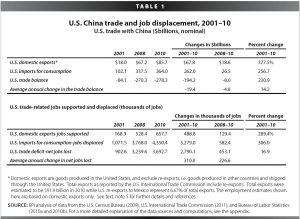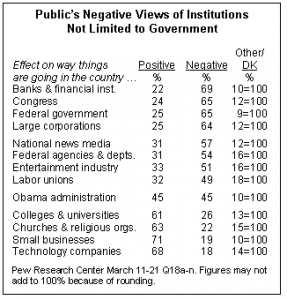An IP Tax, before It’s Too Late
[youtube]N-Pfl6_DlF8[/youtube]
While I was at Netroots Nation, I thought a lot about how the US could tax Intellectual Property. When I saw Honeywell’s CEO claim he should pay no taxes I thought about how much his tech relied on protecting patents. Of course, I was prepping for my panel on tax cheat Apple, which is in a big fight with Samsung. And Microsoft’s earnings last year largely stemmed from tax arbitrage, yet it has no product if people can just copy its software for free.
America’s companies don’t want to pay their fair share to America anymore. And yet most of our most successful international firms–particularly the software and film and ag and drug companies–rely on us to police their intellectual property rights. Having the global bully backing these companies’ intellectual property rights is a cornerstone to their business.
China has overhauled parts of its intellectual property laws to allow its drug makers to make cheap copies of medicines still under patent protection in an initiative likely to unnerve foreign pharmaceutical companies.
The Chinese move, outlined in documents posted on its patent law office website, comes within months of a similar move by India to effectively end the monopoly on an expensive cancer drug made by Bayer AG by issuing its first so-called “compulsory license”.
The action by China will ring alarm bells in Big Pharma, since the country is a vital growth market at a time when sales in Western countries are flagging.
As Yves notes, this is all totally legal, and probably a way for China to start challenging our IP on drugs more generally.
The intriguing part of this is that this Chinese initiative is completely kosher under WTO rules when life-saving medicines are too costly. Given the high prices put on certain AIDS and cancer drugs in dollar terms, they’re the perfect targets for an action like this. India gave a compulsory license for the manufacture of Nexavar which is used to treat kidney and liver cancers. China appears to be using the compulsory license threat to improve its bargaining leverage for some of the newer HIV drugs, such at Gilead’s tenofovir. China was excluded from a deal with a group of nations to buy tenofovir by paying cost plus a small royalty. Gilead has offered more concessions after the media leaked that China was considering implementing compulsory licensing.
Given that China has repeatedly shown it does not have a lot of respect for intellectual property, and it already makes many active pharmaceutical ingredients, one also has to wonder whether this program will serve, intentionally or by accident, to embolden companies that already make the ingredients to start selling bootleg drugs on the side.
It may already be too late–in spite of Obama’s announced “pivot” to Asia, we’ve kept our resources in the Middle East losing another decade long war there. China knows we’re not going to push on IP too aggressively (even ignoring the shaky dollar).
Nevertheless all these wars and all this bullying is really serving the purposes of the IP holders, not the average American. And yet, those IP holders don’t want to pay their fair share–or anything, really–to support all this global bullying.
Shouldn’t we tax those companies relying on us to enforce their IP?


